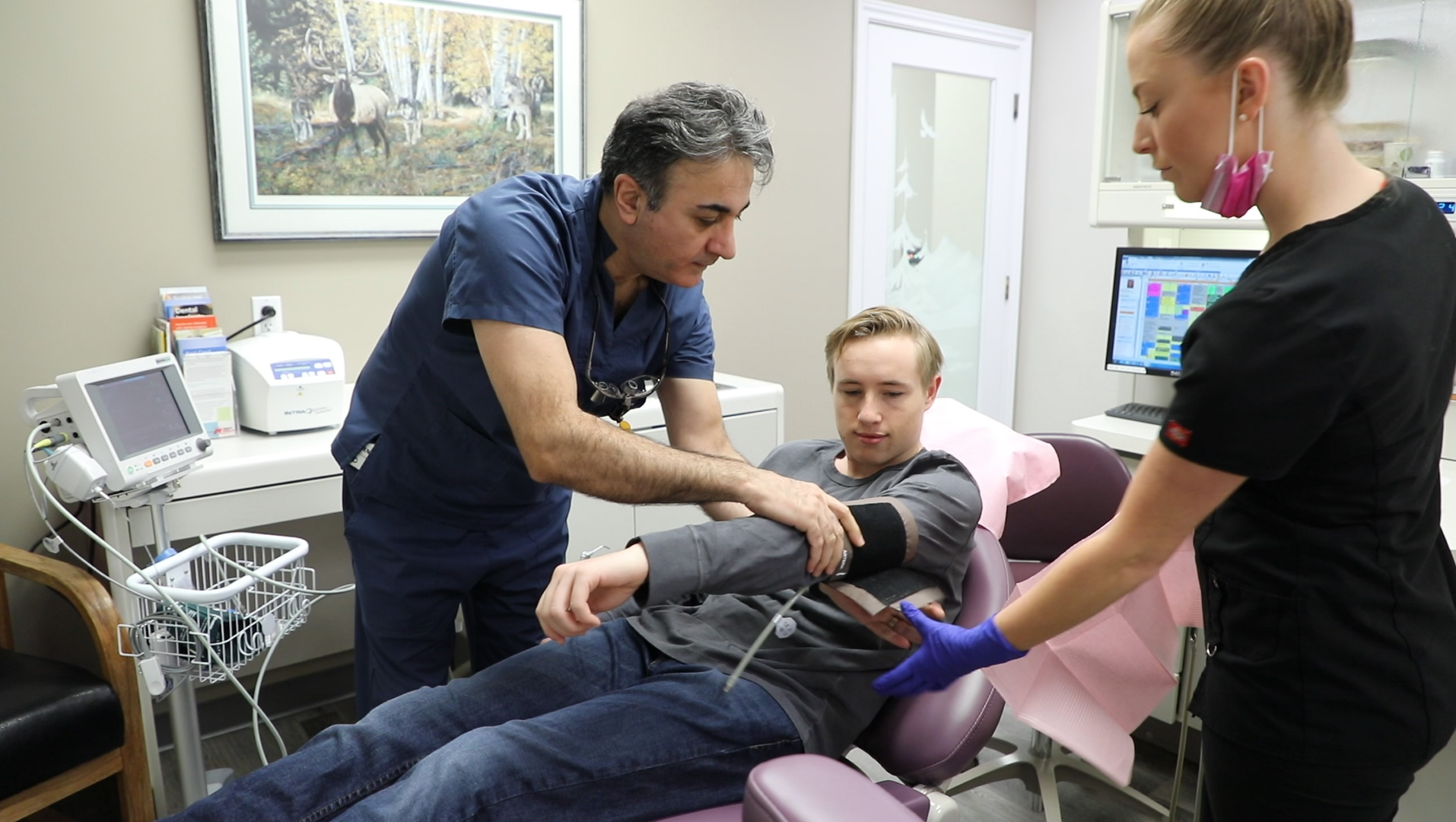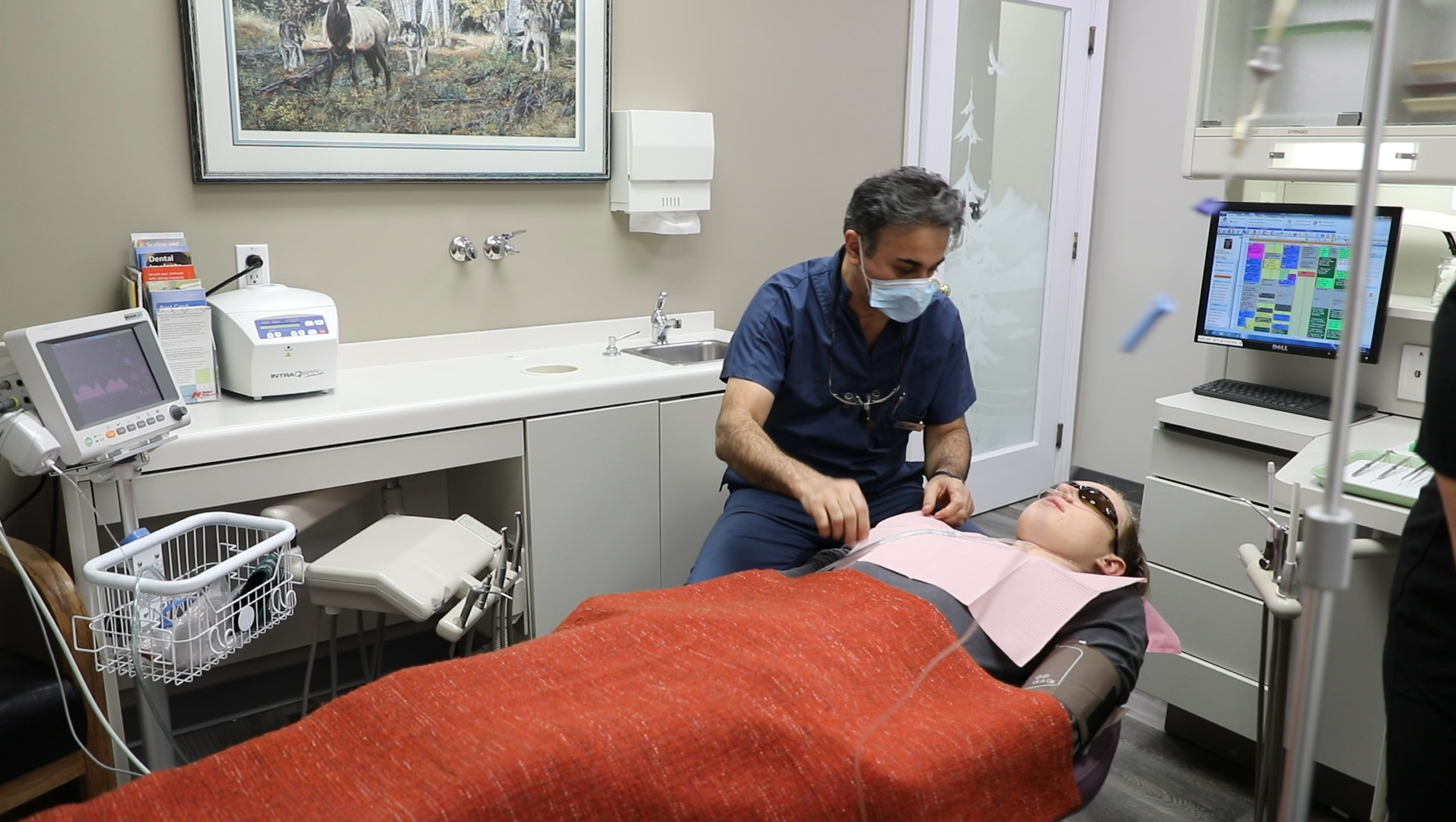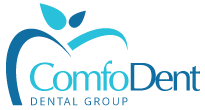Oral and IV Sedation
Sedation dentistry helps deliver dental treatments with ease to patients who suffer from anxiety, need extensive treatment, or have certain physical limitations. During sedation, your dentist uses medication to help you relax throughout your treatment. Sedation comes in various levels, such as inhaled sedation, oral sedation, IV sedation level I and level II (please see below for detailed explanations of each method). Sometimes other terms such as conscious sedation, procedural sedation and sleep dentistry are used to refer to sedation dentistry.

Who Benefits from Sedation?
Sedation dentistry helps patients who:
- suffer from dental phobias, high levels of anxiety and stress.
- have a low tolerance for pain.
- allergic to local anesthetic.
- need lengthy or complicated dental procedures.
- have difficulty keeping their mouth open for an extended period.
- experience gag reflex (choking sensation)
- have mental or physical limitations that make them unable to stay still in the dental chair for treatment.
If you want to use sedation dentistry services, you must discuss your options with your dentist to ensure that sedation methods benefit you.
Types of Sedation Dentistry
The following are the most common sedation types that your dentist might recommend to you:
- Inhaled Sedation or Nitrous oxide for Mild sedation: You will inhale a combination of oxygen and nitrous oxide, also known as laughing gas, through a mask placed over your nose. This minimal sedation method allows you to feel more relaxed throughout the procedure. The effect of the laughing gas wears off quickly, allowing you to return to your regular daily activities, such as driving. This method is recommended mainly for children.
- Oral sedation: Your dentist will prescribe medicine, such as Triazolam, to be taken an hour before your procedure. The drug will make you relaxed and somewhat drowsy, but you can stay awake. Oral sedation allows you to feel more comfortable during your treatment. Depending on the prescribed dose of the medicine, your sedation may range from minimal to moderate in this method. The effect of oral sedation medicine may take some time to wear off, and your dentist may ask someone to accompany you after your treatment.
- Intravenous or IV sedation: During IV sedation, your dentist will give you the sedative directly into your vein. It works faster than oral sedation, and your dentist will be able to adjust the amount of medicine you receive. IV sedation will provide you with a deeper level of relaxation than other forms of sedation. You will be less aware of your surroundings and will not have a memory of the procedure once the effect of the sedatives wears off. The effects of the sedatives last longer in this method, so your dentist will ask you to have someone accompany you after your treatment. In British Columbia, dentists can offer two levels of IV sedation depending on their qualifications.
- Level I or Intravenous sedation with a Single drug: The qualified dentist is just allowed to utilize Benzodiazepine, which provides a certain level of sedation for patients.
- Level II or Intravenous sedation with Multiple drugs: The qualified dentist with more advanced education is authorized to combine medications to provide a more profound and relaxing sedation experience for patients. The most common drugs are Benzodiazepine plus Fentanyl (or other Narcotics)
- General Anesthesia: The other option is general anesthesia, which is relatively uncommon for sedation dentistry. It is only recommended for very young kids, patients who are resistant to other types of sedation or need significant jaw surgery. You are completely unconscious during general anesthesia, and the machine will help you breathe. The nature of the procedure makes it risky and more expensive. This procedure generally happens in a hospital or specialized clinic with the presence of an anesthesiologist.

Do all dentists provide sedation dentistry services?
The Canadian Dental Association and British Columbia College of Oral Health Professionals carefully regulate the use of sedation dentistry methods. Only dentists who have received the required level of training and certification for sedation dentistry are qualified to deliver these services. Every type of sedation dentistry requires specific training and certification, and dentists only may perform sedation dentistry types they have been certified to provide. A limited number of dentists in British Columbia are authorized to provide a high level of sedation (Level II). Also, dental assistants must be trained and certified in sedation dentistry.
Is Sedation Dentistry safe?
Generally speaking, sedation is very safe when administered by a certified and experienced dentist. However, no medical professional can say with absolute certainty that there is no risk involved with sedation. Certain conditions such as obesity, diabetes, sleep apnea, COPD and severe health concerns may increase the risk for sedation and need special attention and evaluation.
It is important to remember that the qualified dentist has undergone rigorous training to get licensed for sedation dentistry. Your qualified dentist will use some of the following strategies to ensure your sedation is safe and effective.
- Discussing medical history and existing health concerns with you and your family physician (if needed)
- Evaluating your current medication and possible interaction with sedation
- Monitoring your Vital signs using a modern monitoring machine throughout the procedure
- Having a certified sedation assistant to help with monitoring
- Having particular drugs to reverse the effects of sedation if needed
Even though sedation dentistry is entirely safe for most patients, it is normal to feel skeptical about a medication or unfamiliar procedure, so you should ask questions. Contact a qualified dentist and find out how they can help you with your questions and concerns.
Do I require sedation for my treatment?
Your dentist is the only person with the knowledge and expertise to answer this question. It depends on various factors such as your anxiety levels, the nature of your dental treatment, overall health and medical history. Your dentist will assess your situation and discuss your options and recommendations.
If you need more information about oral and IV sedation or would like to discuss your options, please do not hesitate to contact one of our three clinics at Chilliwack. We will book a free consultation appointment for you to review your options with your dentist.
